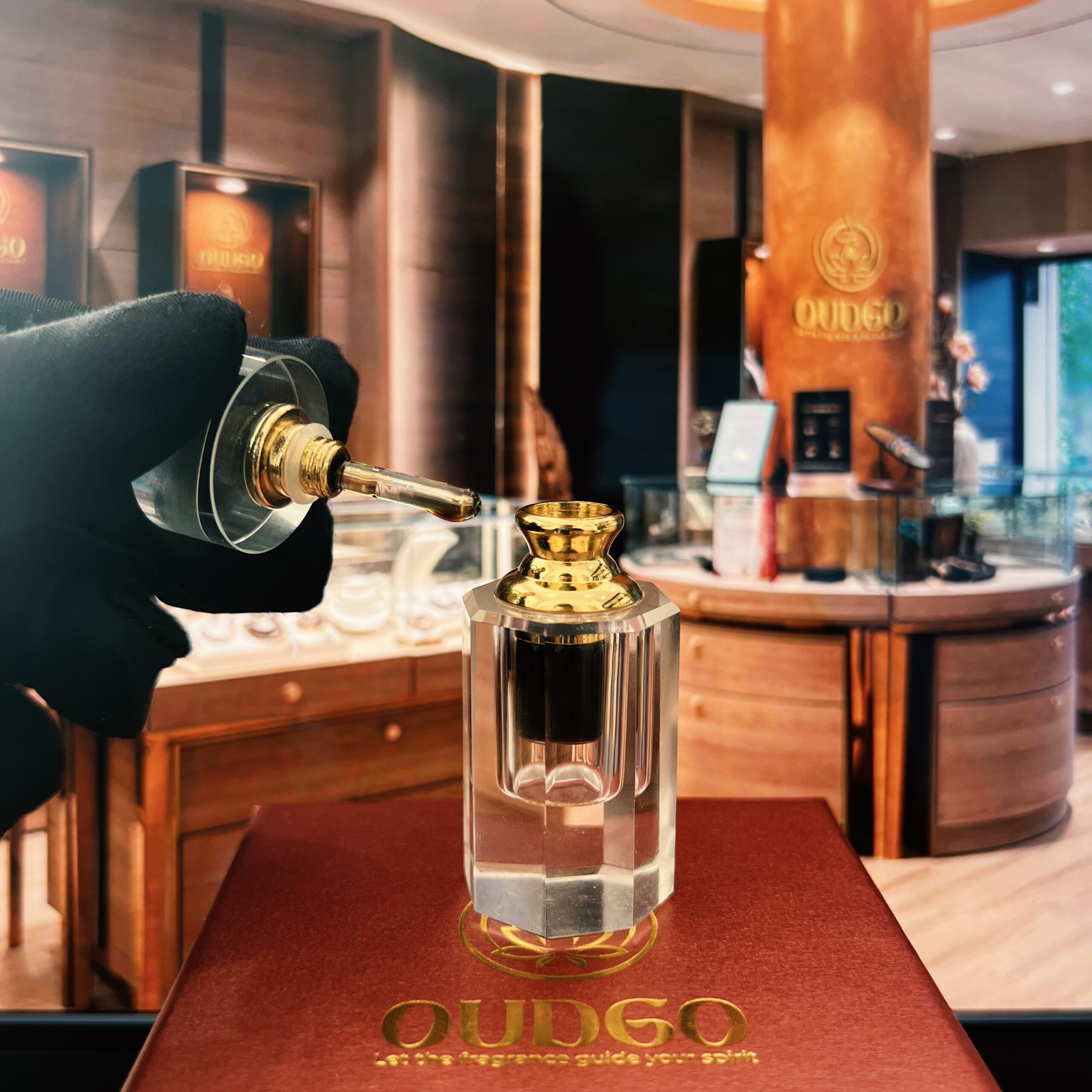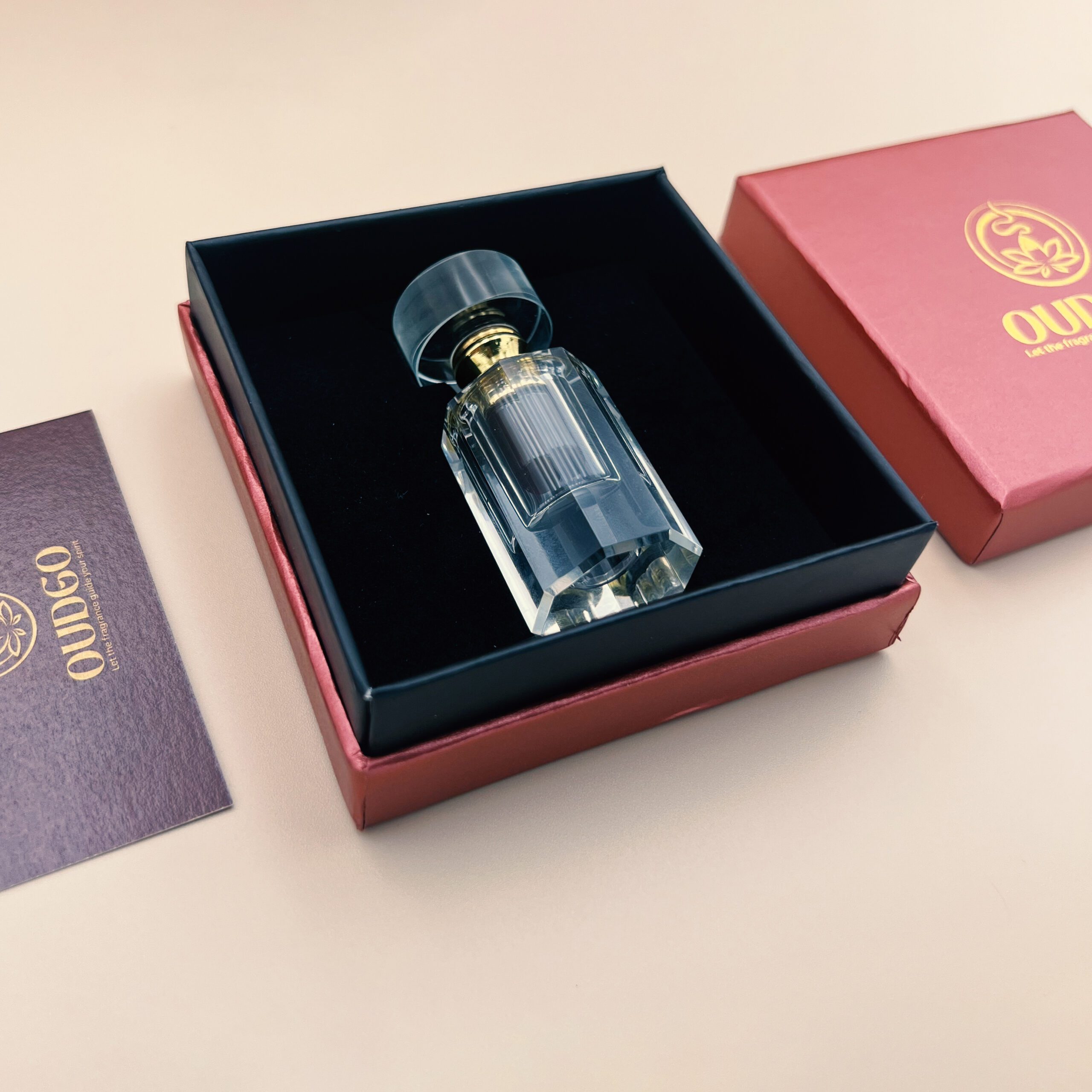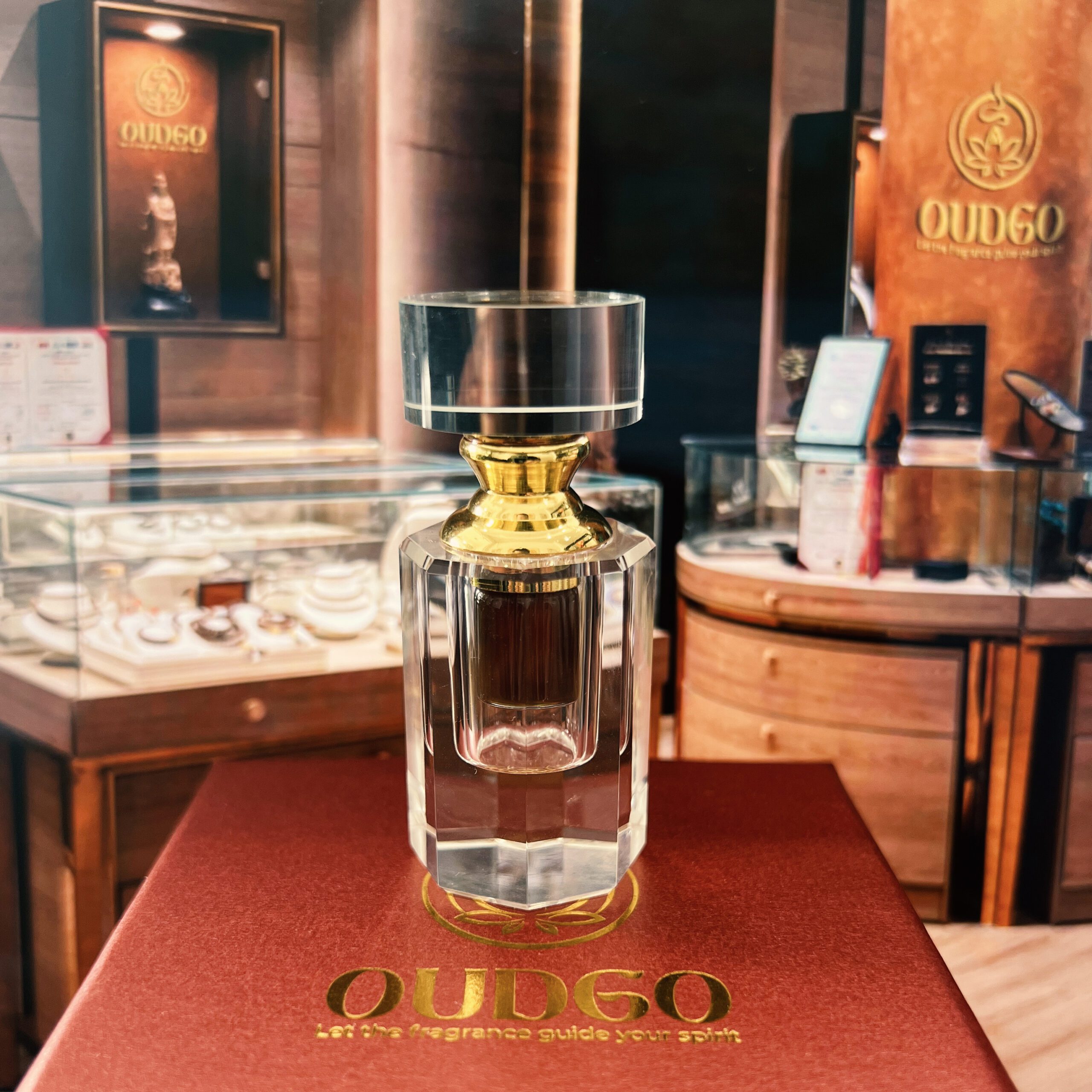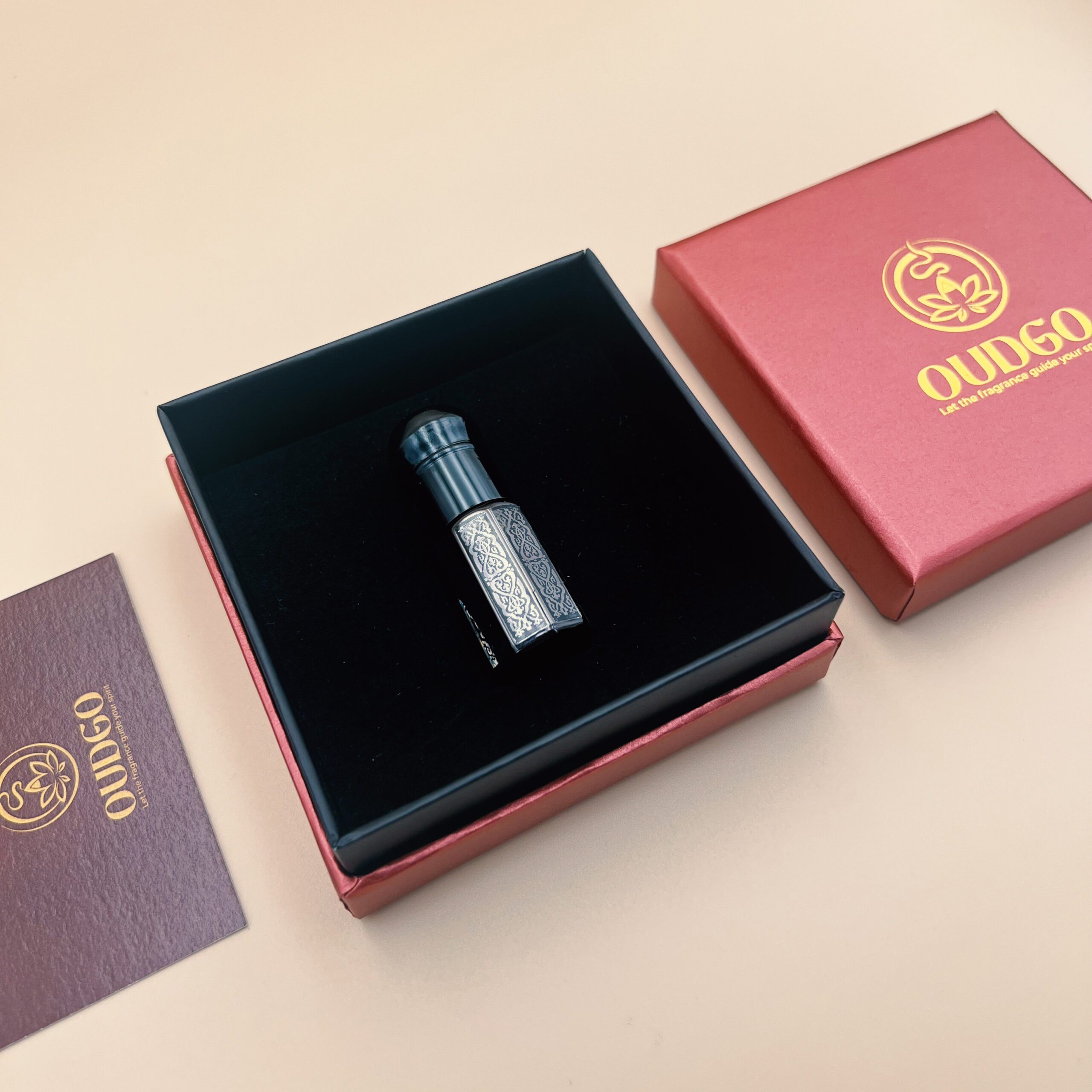



Agarwood Oil (Oud Oil): Unlocking the Mysteries of Nature’s Liquid Gold
Your Ultimate Guide to Understanding and Using Pure Agarwood Oil
Introduction
Agarwood oil, commonly known as oud oil, is one of the most valuable and coveted essential oils on the planet. Extracted from the resinous heartwood of Aquilaria trees, this aromatic treasure has enchanted cultures for centuries with its deep, complex fragrance and profound cultural significance. Often dubbed “liquid gold,” agarwood oil’s rarity and versatility make it a sought-after commodity in perfumery, aromatherapy, and spiritual practices.
Why Is Agarwood Oil So Valuable?
- Scarcity and Uniqueness: Agarwood resin forms only when Aquilaria trees are infected by a specific mold, making it an exceptionally rare natural occurrence. This scarcity drives its high market value.
- Cultural and Historical Significance: Used in religious ceremonies, traditional medicine, and as a status symbol, agarwood oil holds a revered place in Asian and Middle Eastern cultures.
- Versatile Applications: From enhancing meditation to crafting luxury fragrances, agarwood oil’s multifaceted uses add to its allure.

1. Pure Agarwood Oil: Capturing Authenticity
What Is Pure Agarwood Oil?
Pure agarwood oil is the unadulterated essence extracted directly from the resinous wood of the Aquilaria tree. Free from additives and synthetic enhancements, it offers an authentic aromatic experience that reflects the true character of agarwood.
Pure vs. Diluted Agarwood Oils
- Pure Oud Oil: Contains only natural compounds from agarwood resin, preserving the full depth and complexity of its scent.
- Diluted or Synthetic Oils: Often mixed with carrier oils or artificial fragrances, lacking the richness and therapeutic benefits of pure oud oil.
Characteristics of Pure Oud Oil
- Aromatic Profile: A sophisticated blend of woody, sweet, and balsamic notes with subtle hints of spice and earthiness.
- Appearance: Ranges from light golden to deep brown, with a thick and viscous consistency.
- Longevity: The scent evolves over time on the skin, lingering for extended periods.
Benefits of Using Pure Agarwood Oil
- Therapeutic Effects: Known for its calming properties, it helps reduce stress and promote relaxation.
- Perfumery: Serves as a powerful base note, adding depth and longevity to fragrances.
- Spiritual Enhancement: Used in meditation and mindfulness practices for its grounding aroma.
How to Identify Authentic Agarwood Oil
- Scent Evaluation: Authentic oud oil has a multi-layered fragrance that unfolds over time.
- Price Consideration: Genuine oils are typically expensive due to their rarity.
- Certification: Purchase from suppliers who provide certificates of authenticity or third-party lab testing.

2. The Origins of Agarwood Oil: A Cultural Journey
The origin of agarwood oil significantly influences its scent profile and quality. Different regions produce unique variations, each with distinct characteristics.
Major Sources of Agarwood Oil
- Southeast Asia: Cambodia, Vietnam, Laos
- South Asia: India (Assam region)
- East Asia: Japan
- Sri Lanka
- Middle East: Significant users but limited cultivation

Notable Varieties
- Cambodian Oud Oil: Renowned for its sweet, fruity top notes and deep, woody base, making it a favorite among perfumers.
- Malaysian Oud Oil: Features earthy and woody tones with spicy undertones, often used in traditional medicine and luxury perfumery.
- Hindi Oud Oil (India): Exhibits strong, animalic notes with a robust earthy scent, integral to Indian rituals and Ayurvedic practices.
- Kyara/Kynam Oud Oil (VietNam): Considered the pinnacle of oud oils, it’s highly rare with a complex aroma of sweet, spicy, and subtle smoky notes.
- Silani Oud Oil (Sri Lanka): Offers a delicate aroma with floral and woody nuances, used in fine fragrances and therapeutic applications.
Choosing Agarwood Oil by Origin
The soil composition, climate, and specific Aquilaria species contribute to the unique scent profiles of agarwood oils from different regions. Connoisseurs often select oils based on their personal preferences and the specific characteristics associated with each origin.

3. Buying Agarwood Oil: Pricing and Considerations
Understanding Agarwood Oil Pricing
- Scarcity: Over-harvesting and the slow growth of agarwood trees limit availability.
- Quality Grades: Higher resin content and purity command higher prices.
- Extraction Methods: Traditional distillation is labor-intensive, affecting cost.
Price Range Overview
- Pure Oud Oil: Prices can range from $500 to over $30,000 per kilogram, depending on quality and rarity.
- Lower Grades: Mixed or diluted oils are less expensive but may lack authenticity and therapeutic benefits.
Where to Buy Authentic Agarwood Oil
- Reputable Suppliers: Seek vendors specializing in high-quality essential oils with positive customer reviews.
- Direct from Producers: Purchasing directly from distilleries in producing countries can ensure authenticity.
- Online Marketplaces: Use platforms with stringent seller verification and look for certificates of authenticity.
Tips for Purchasing
- Research: Investigate the seller’s reputation and product reviews.
- Sample Testing: Request samples before making significant purchases.
- Beware of Bargains: Extremely low prices may indicate diluted or synthetic products.

4. Agarwood Oil in Aromatherapy
Therapeutic Properties of Agarwood Essential Oil
- Stress Relief: Its calming aroma helps reduce stress and anxiety.
- Mental Clarity: Enhances focus and supports meditation practices.
- Emotional Balance: Aids in alleviating symptoms of depression and promoting emotional well-being.
Aromatherapy Applications
- Diffusion: Add a few drops to a diffuser to fill your space with its soothing scent.
- Topical Use: Dilute with a carrier oil for massages or skin applications to harness its therapeutic benefits.
- Blending: Combines well with sandalwood, rose, and jasmine oils for enhanced effects.
Safety Precautions
- Dilution: Recommended at a 1-2% concentration for topical applications.
- Allergy Testing: Perform a patch test to rule out sensitivities.
- Professional Guidance: Consult a certified aromatherapist for personalized advice.

5. Premium and Aged Agarwood Oils
What Defines Premium Agarwood Oil?
- Aging Process: Like fine wine, aged oud oil develops richer, smoother notes over time.
- Quality of Raw Material: Resin from older trees with high infection levels yields superior oil.
- Artisanal Craftsmanship: Traditional extraction methods preserve the oil’s integrity and complexity.
Benefits of Aged Oud Oil
- Enhanced Aroma: Aging allows the scent to mature, offering a softer and more rounded fragrance.
- Collector’s Value: Rare and premium oils can appreciate in value, making them attractive to collectors.
Recognizing the Best Oud Oil
- Purity and Authenticity: Ensure the oil is 100% pure without additives.
- Aromatic Complexity: Look for a multi-layered scent that evolves over time.
- Trusted Sources: Purchase from reputable producers known for high standards.
Notable Producers
- Ajmal Perfumes: Renowned for luxury oud products.
- Ensar Oud: Specializes in artisanal, small-batch oud oils.
- Agar Aura: Offers ethically sourced, high-quality oud oils.
6. Agarwood Oil in Perfumery and Skincare
Agarwood Oil in Fragrances
- Base Note Excellence: Provides depth and longevity to perfumes.
- Fixative Qualities: Enhances and stabilizes other fragrance components.
- Featured in Iconic Scents: Used in luxury perfumes like Tom Ford’s Oud Wood.
Skincare Benefits
- Anti-inflammatory: Soothes irritated skin and reduces redness.
- Antioxidant Properties: Helps combat signs of aging and protects against environmental damage.
- Luxury Skincare Products: Found in high-end creams, serums, and facial oils.

DIY Beauty Recipes
- Custom Fragrances: Create personalized scents by blending agarwood oil with carrier oils and other essential oils.
- Nourishing Facial Oils: Mix a few drops with jojoba or argan oil for a revitalizing skin treatment.
- Luxurious Body Butters: Infuse shea or cocoa butter with agarwood oil for an indulgent moisturizer.
Market Trends
- Growing Popularity: Increasing demand in Western markets for natural and exotic fragrances.
- Sustainable Practices: Ethical harvesting and cultivation are becoming industry priorities.
- Innovation: Development of lab-grown agarwood and synthetic alternatives to meet demand and reduce environmental impact.
Conclusion
Agarwood oil transcends its status as an essential oil, serving as a bridge between nature’s finest offerings and centuries-old cultural traditions. Its rich history and multifaceted applications make it a valuable addition to the lives of fragrance enthusiasts, wellness practitioners, and those seeking a deeper connection with natural products.
Understanding the nuances of pure oud oil, from its origins to its therapeutic benefits, allows you to fully appreciate why this “liquid gold” has been treasured for generations. Whether you’re looking to explore its use in aromatherapy, incorporate it into your skincare routine, or simply experience its unparalleled fragrance, agarwood oil offers a sensory journey unlike any other.
